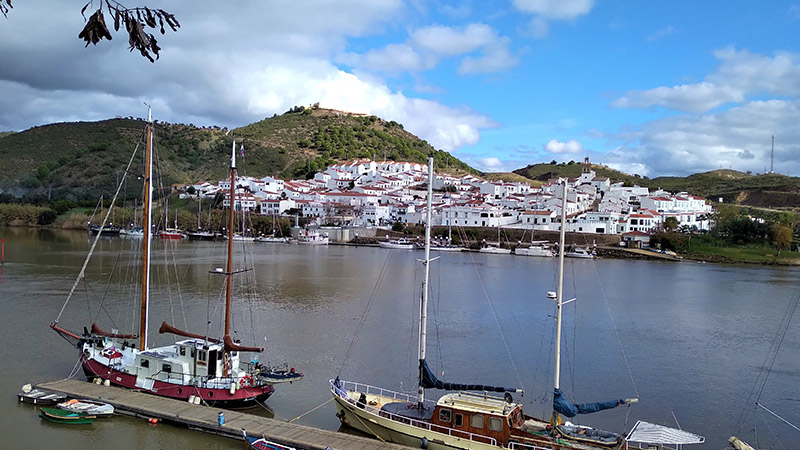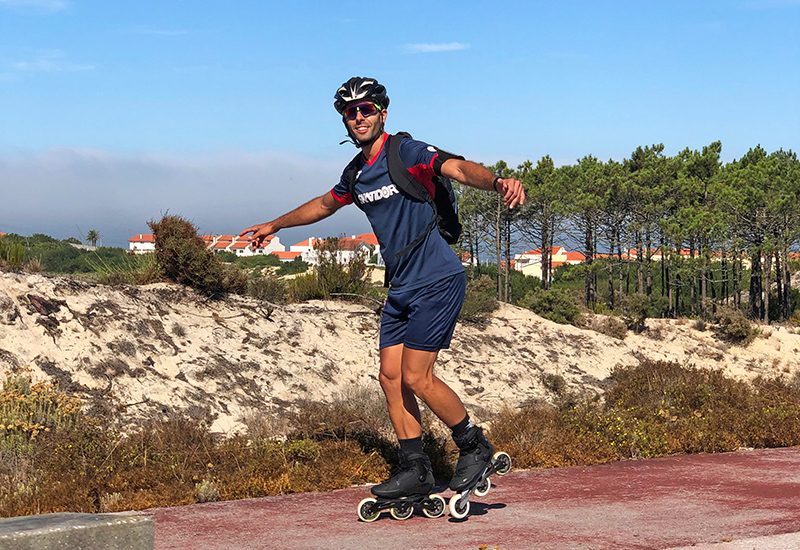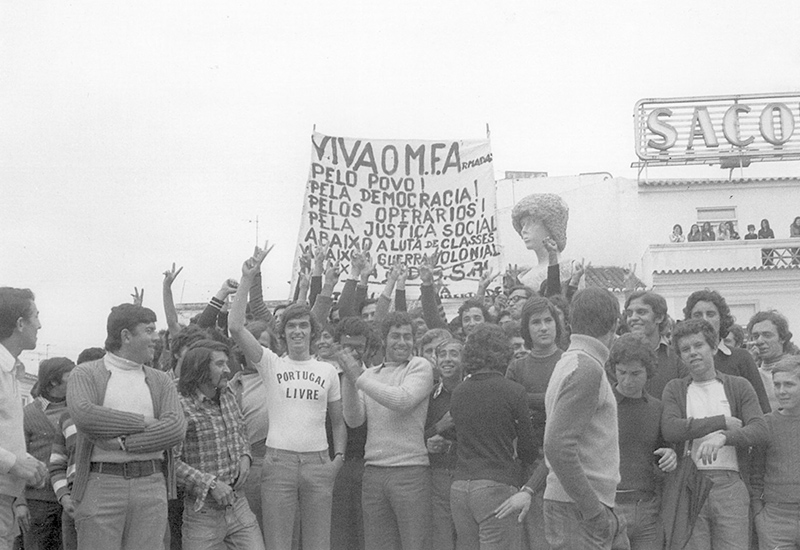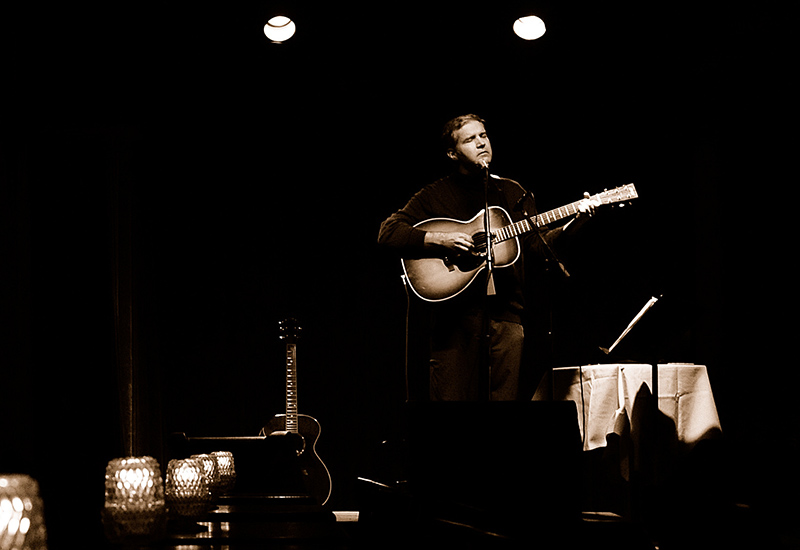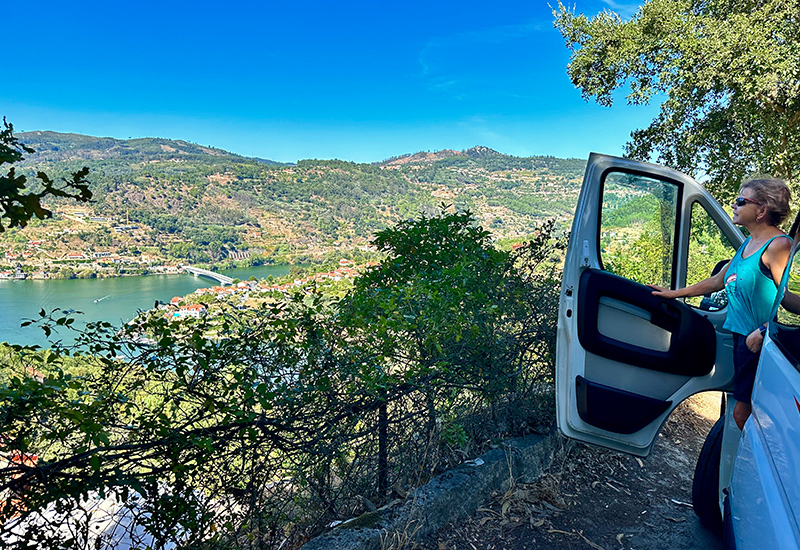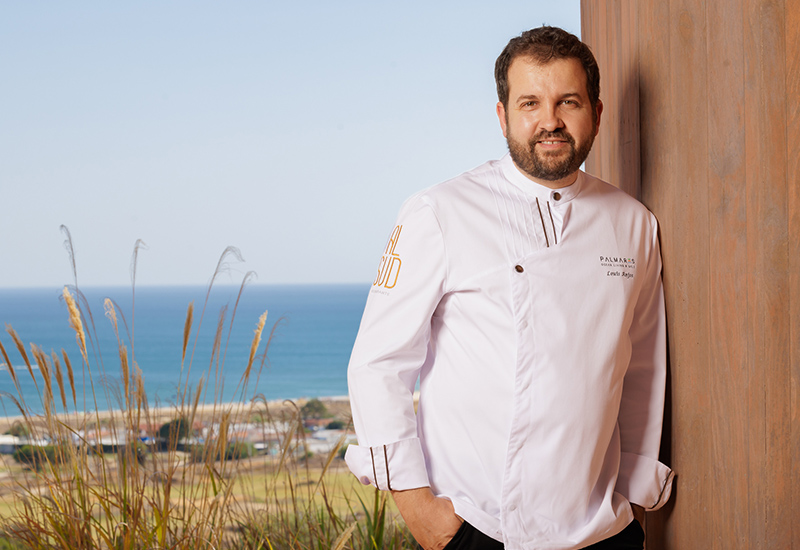By Julian Putley
During a discussion with a long-time resident of Portugal, the subject of the Algarve’s Guadiana river and the town of Alcoutim was introduced. “It’s one of the Algarve’s best kept secrets,” he said. With my daughter visiting from England, and her godmother a recent Portugal resident, we decided to check it out.
The excursion can be done in a day – it’s about two and a half hours from Lagos by car. In hindsight, allowing two or three days would have allowed us more intense exploration of the area. We took the route less trodden and at the halfway mark turned onto N124 and up into the rolling, pine-clad hills. The views were spectacular with mist in the valleys providing an ethereal beauty.
We decided to stop at the traditional rural village of Cachopo for coffee. There is no surrender to tourism here but Christmas tradition had dictated a nativity scene, displayed next to a bar (inn). The figures were made of stitched sackcloth and the Three Wise Men were humbly waiting to greet the ‘new born king’. The three were holding their gifts of gold, incense and myrrh, the gold identified by a shining euro sign on the bag! Historically accurate? No, but good for a chuckle at the ingenuity.
As we approached Alcoutim, the road descended from the mountainous region of the Serra do Caldeirão. Around a bend and there it was. We drove down to the water’s edge and were surprised by the many ocean-going yachts anchored in the river and tied to floating docks at the banks; the town is some 25 nautical miles from the ocean. Across the river on the Spanish side is the twin city of Sanlúcar de Guadiana. Each of these towns has a castle (castelo), a church (igreja) and an impressive history, including various monuments and points of interest.


The region has been occupied by the Greeks, the Romans and the Moors, the latter group leaving their mark in much of the Iberian Peninsula. The name Alcoutim comes from the Arabic Al-Qutami, a peregrine falcon, which is famed as being the fastest recorded life form on the planet. Alcoutim’s small size belies its impact on Portugal’s impressive history. Here, there have been many wars, skirmishes and battles as well as long periods of peace and friendship.
During the Portuguese War of Restoration from 1640 to 1668, the town of Alcoutim was heavily attacked with artillery by the Spanish from across the river, but the Portuguese resisted and secured their independence. The castle of Alcoutim continued to be used for military purposes until 1878.
The three of us walked the bank of the river and were surprised to see a marble statue, a monument to smuggling. Before the European Union, there were duties levied on the import and export of goods so, like many border towns, smuggling developed. Coffee and sugar were transported across to Spain and various cloth and fabrics returned in the other direction. For many, it was a necessary means of survival. Today smuggling is celebrated by both border towns and at festival time a floating bridge is erected across the river. The first festival took place in 2017 and was a huge success. It provided visitors with a variety of cultural events including music, theatre, traditional arts and crafts, and circus acts while smugglers and tax officers roamed the streets trying to look as authentic as possible. The 2020/21 event was cancelled due to the COVID pandemic. The region is still awaiting an announcement on the 2022 fair.

The Alcoutim smuggler
After a pleasant lunch we explored the town. We noted that a zip line exists here, the only cross border zip in the world. A ferry will take you across the river to Sanlúcar on the Spanish side. The jumper then flies down the wire at a speed between 70 and 80 kilometres an hour to arrive back on the Portugal side. We didn’t do it fearing it might be a good way to bring up our recently digested meal.
By late afternoon, we were on our way back to Lagos wishing we had had more time. Another visit is still on our ‘bucket list’.
Getting to Alcoutim:
By far the best option is by car. Reasonable rental vehicles are available in Vila Real. Public transport can be difficult.
Public transport: by train or bus to Vila Real de Santo António (change in Faro). From Vila Real to Alcoutim there’s a bus service on Mondays, Wednesdays, and Fridays at 17:10. The return trip is on Tuesdays and Thursdays.
There are excursions up the Guadiana River by ferry from Vila Real in summer season.
